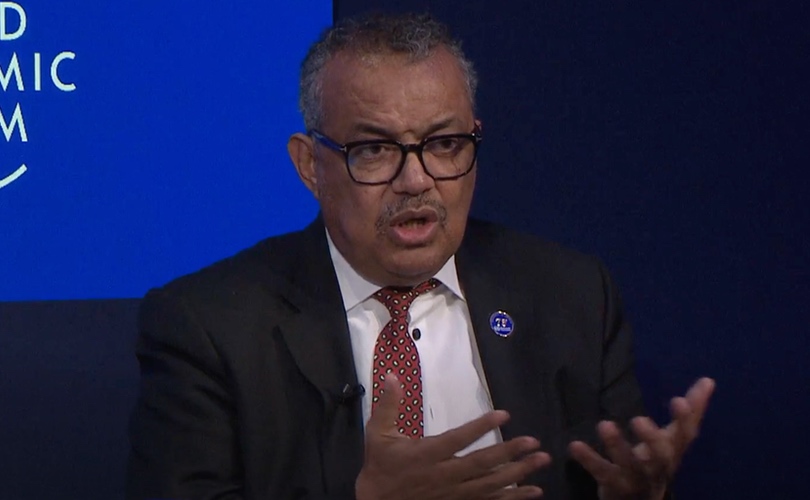
(LifeSiteNews) — The World Health Organization (WHO) has declared a monkeypox (“mpox”) outbreak in Africa to be a “public health emergency of international concern (PHEIC).”
“The emergence of a new clade of mpox, its rapid spread in eastern DRC (Democratic Republic of Congo), and the reporting of cases in several neighbouring countries are very worrying… it’s clear that a coordinated international response is needed to stop these outbreaks and save lives,” said WHO Director-General Dr. Tedros Ghebreyesus on Wednesday as he declared the PHEIC.
But while the WHO is sounding the alarm, so to speak, citing the virus’ lethal danger as shown by at least 450 deaths during an initial outbreak in the DRC, renowned internist Dr. Peter McCullough has clarified to LifeSiteNews that “the average American should not have any concerns over this illness.”
Dr. McCullough pointed out that 96% of the monkeypox cases in the recent outbreak occurred in the Congo, “one of the poorest countries in the world.”
“Clade 1 of the virus, the current strain is being spread by sex workers and largely gay/bisexual males with intensive sexual contact,” said Dr. McCullough, confirming the WHO’s admission that the new virus strain, “clade 1b,” is spreading primarily through sexual contact.
He further explained that the virus “can be fatal if contracted by a person with advanced HIV disease and in a country with very poor healthcare such as the Congo.”
Dr. Ghebreyesus will “issue temporary recommendations to countries” to address the new mpox clade, according to the WHO, which has not indicated when this will occur.
“Significant efforts are already underway in close collaboration with communities and governments, with our country teams working on the frontlines to help reinforce measures to curb mpox,” said WHO Regional Director for Africa Dr Matshidiso Moeti. “With the growing spread of the virus, we’re scaling up further through coordinated international action to support countries [to] bring the outbreaks to an end.”
Committee Chair Professor Dimie Ogoina alluded to the fact that not long ago, there was a global outbreak of mpox stemming from Africa in 2022. Alleging that the virus was “neglected” in Africa, Ogoina declared, “It is time to act decisively to prevent history from repeating itself.”
In fact, yesterday marks the second time in two years that a PHEIC declaration has been made due to mpox. In July 2022, an outbreak of mpox in Africa was declared a PHEIC after it spread to countries where the virus had previously been undetected. “That PHEIC was declared over in May 2023 after there had been a sustained decline in global cases,” according to the WHO.
One of the main reasons for the new PHEIC, according to the WHO, is the detection of a new strain of the mpox virus in countries in countries that have never reported mpox, including Kenya, Rwanda, Uganda, and Burundi.
The WHO has already recommended two vaccines that are currently being used to address mpox, which are “approved by WHO-listed national regulatory authorities, as well as by individual countries.”
Dr. McCullough warned, “We should never vaccinate into a widely prevalent pandemic because it will promote resistant strains and make the problem much worse,” adding that the “Jynneos Bavarian Nordic Monkeypox vaccine causes myocarditis or heart damage, particularly in men.”
READ: Pharma, WHO team up to create permanent ‘pandemic’ market for mandated, experimental vaccines
